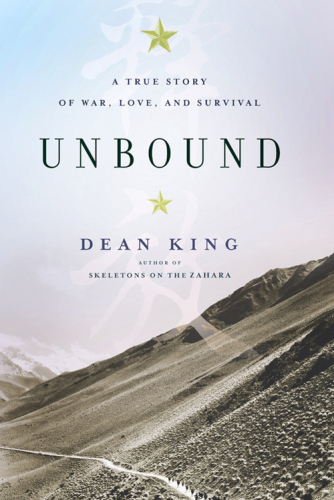
Unbound
A True Story of War, Love, and Survival
- اطلاعات
- نقد و بررسی
- دیدگاه کاربران
نقد و بررسی

January 1, 2010
Journalist King (Skeletons on the Zahara: A True Story of Survival, 2004, etc.) follows the 30 remarkable women who endured the Red Army's legendary Long March.
The word"unbound" in the title reflects the radical communist message espoused by early leaders like Mao Zedong that women long suppressed in Chinese society—their feet broken and bound, married off as children, reduced to lives as chattel and servants—had important roles as soldiers and reformers in the new revolutionary movement. The Communists effectively infiltrated the peasant villages with their message, and girls leaped at the chance to flee their blunted status. When Mao masterminded the movement of the hugely unwieldy 86,000-man guerrilla army from its encirclement by the Nationalists in Jiangxi in October 1934, 30 of the strongest women—some teenagers—were selected to accompany the men. Their job was largely to care for the convalescents in the mobile hospital unit. King traces their yearlong trek from Ruijin, across southwestern China, then northward, within the First Army, which was headed by Mao and later splintered into other units such as the Fourth Army, headed by the renegade Zhang Guotao. Eventually the armies converged in Sichuan in June 1935. After nearly 4,000 miles, decimated by disease, lack of adequate food, exposure and attrition, many of the group perished. Some of the women had to give birth along the way, then abandon their children to peasant families. The terrain was unbelievably harsh, and they faced Nationalist and Tibetan skirmishes along the way. King pursues the sad irony of these women's fates through the Cultural Revolution, when many of the early heroines—whom he depicts in photos and mini-biographies—were persecuted and destroyed.
A terrific feminist story and a significant document of this incredible human feat.
(COPYRIGHT (2010) KIRKUS REVIEWS/NIELSEN BUSINESS MEDIA, INC. ALL RIGHTS RESERVED.)

May 1, 2010
King ("Skeletons on the Zahara: A True Story of Survival"), a prolific writer of adventure and exploration stories, here transports readers to Mao Zedong's 193435 Long March, a trek to escape Chiang Kai-shek's superior forces. The arduous but successful march is a heroic founding myth of the People's Republic of China, perhaps comparable with Washington at Valley Forge. Some have recently challenged its truth, but most scholars accept the basic story even while doubting parts. There are many books on the subject, but King focuses on the women marchers (several other books have done the same, however). King uses English-language scholarship, translations by research assistants, interviews, and his own travels along the route to tell lively stories, but since there were comparatively few of these women, the narrative strains and jumps back and forth between their individual stories, women in China, the progress of the march, and the big picture of modern Chinese history. VERDICT This energetic book will appeal most to readers with less initial knowledge of China.Charles Hayford, Northwestern Univ., Evanston, IL
Copyright 2010 Library Journal, LLC Used with permission.

March 15, 2010
In 1934, following threats by the Chinese Nationalists to destroy their village in remote southeastern China, 30 women fled with Mao Tse-tungs Red Army. They were not only fleeing certain destruction but the social restrictions of an ancient society that relegated women to menial lives of servitude, poverty, arranged marriage, and bound feet and life prospects. In what became known as the Long March, the army and the women trekked 4,000 miles in one year to forge resistance to Chiang Kai-sheks repressive regime and to find new lives for themselves. Among them were a woman from a distinguished family that was friendly to Mao and another young woman, the daughter of a fisherman, who was given away to pay off debts. The women recall romantic attachments, political awakenings, and service in the army and later in Communist politics. King (Skeletons on the Zahara, 2004) spent five years retracing their trek and interviewing survivors and historians to offer a very human account of an event that has loomed large in Chinese history. Maps and photographs enhance the chronicling of this extraordinary story.(Reprinted with permission of Booklist, copyright 2010, American Library Association.)




دیدگاه کاربران